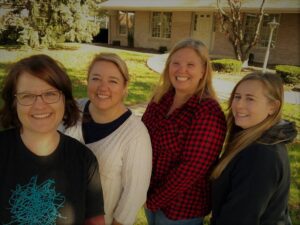
PI: Doug Teti
NIH 1R01HD087266
Administered in: College of Health and Human Development
Abstract:
The transition to kindergarten is one of the most impactful transitions in the life of a young child, requiring new social, emotional, and cognitive competencies across a variety of domains and an emphasis on formal instruction and evaluation never experienced before. For many children in full-time kindergarten, kindergarten now functions as the new first grade, and the social and academic competencies observed during this time set the stage for later school success. Unfortunately, although many children make successful transitions to school, some do not. School adjustment is multi-faceted and, not surprisingly, multiply determined. However, one particular determinant, child sleep, is largely understudied as a predictor of early school success, despite growing evidence that sleep problems in children and adults predict externalizing and internalizing behavior problems, emotion dysregulation, sleepiness, and attentional difficulties during daytime hours. Project SIESTA-K draws upon work by the PI and others in his investigative team and focuses on the unique role of sleep in young children in predicting children’s adjustment across the kindergarten year, and the role of parenting in shaping good sleep habits in young children during this transition. We make use of an innovative measurement-burst design to assess child sleep (quality, duration, and lability), parenting, and coparenting and personal distress as predictors of child sleep characteristics, with assessments obtained before kindergarten begins (pre-K), early in the transition year (late September-early October), mid-transition (November), and late-transition (April). Children’s learning engagement, academic progress, socio-emotional functioning, executive functioning, and literacy skills are assessed at early-, mid-, and late-transition timepoints. Analyses focus on trajectories of child sleep as predictors of school adjustment, and parenting and couple distress as predictors of child sleep across the kindergarten year. This research is being funded by the National Institute of Child Health and Human Development. It will provide an important foundation for understanding the role of children’s sleep in predicting children’s transition to K across the full year of school, and the role of parenting and parental distress in shaping children’s sleep during this pivotal time.
Additional Faculty:

Orfeu Buxton
Biobehavioral Health

Karen Bierman
Psychology

Jacqui Mogle
College of Nursing Sciences

David Almeida
Human Development and Family Studies
Research Staff:

Corey Whitesell, Angie Spangler, DeeAnne McDaniel, and Heather Taylor